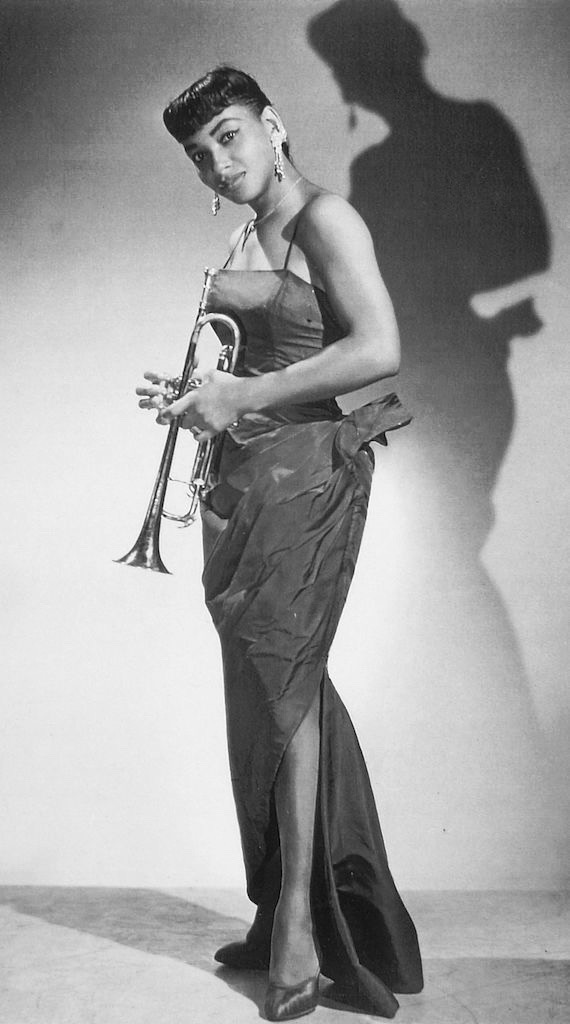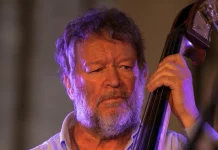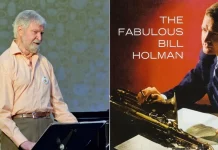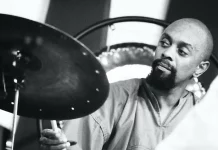She was an exceptionally talented trumpet player, but Clora Bryant’s career was drastically and unfairly restricted because she was a woman. She came along at a time when female instrumentalists in jazz (pianists and guitarists apart) were disregarded, even ridiculed. Although attitudes began sluggishly to change, even in her later career she was never accorded the attention her ability merited.
She was born Clora Larea Bryant, 30 May 1927, Denison, Texas. When she was three years old, her mother, Eulila, died and she and her older brothers, Frederick and Melvin, were raised by their father, Charles. A day labourer, he encouraged her musical ambitions and she first played piano but then took up trumpet while still in her early teens. Although offered educational opportunities at other establishments, including Oberlin Conservatory, she chose to study at Prairie View A&M University, Houston, so that she could play in their all-female jazz band.
In the early 1950s, she was appearing at a Hermosa Beach club when Parker sat in playing a borrowed tenor saxophone. As Bryant told The Los Angeles Times in a 2002 interview: “I almost wet my pants”.
In 1945 her family moved to Los Angeles where she attended UCLA and also played in various bands. These included The International Sweethearts of Rhythm, The Darlings Of Rhythm and The Queens of Rhythm. In the last named she sometimes depped as drummer, reportedly entertaining audiences by playing drums and trumpet simultaneously (one hand to each).
On hearing 1947 radio broadcasts of Dizzy Gillespie, who was playing with Charlie Parker at Billy Berg’s club, she adapted to modern jazz styling. In the early 1950s, she was appearing at a Hermosa Beach club when Parker sat in playing a borrowed tenor saxophone. As Bryant told The Los Angeles Times in a 2002 interview: “I almost wet my pants”. That she was greatly admired by musicians of this calibre is apparent from an occasion when Louis Armstrong sat in with her band during a Las Vegas engagement. Also, in an interview with Gillespie in Zeinabu Davis’s 1989 documentary film, Trumpetistically, Clora Bryant (re-released in 2005), he observed, “She has the feeling of the trumpet. The feeling, not just the notes”.
Clora Bryant … Gal With a Horn: The prevailing reluctance to accept female instrumentalists was applied here when, against her inclinations, she was obliged to sing on all tracks
Combining a musical career with family life slowed her progress for a few years, but she continued to play in clubs, appeared on television and also made an album for Mode, 1957’s Clora Bryant … Gal With a Horn (reissued on CD by VSOP). The prevailing reluctance to accept female instrumentalists was applied here when, against her inclinations, she was obliged to sing on all tracks. Through the following years she played in Denver, Colorado, formed a double act with her trumpeter brother, Frederick, backed Billy Williams in Las Vegas and also appeared with him on The Ed Sullivan Show and (fleetingly) on The Billy Williams Revue album.
Remarkably, she combined freelancing with raising a family, marrying bassist Joe Stone, with whom she had two children, April and Charles Stone. After she and Stone were divorced, she had a lasting relationship with drummer Leslie Milton, with whom she had two more children, Kevin and Darrin Milton.
In the late 1970s she extended her musical studies and also gigged with various groups in Los Angeles, including Bill Berry’s LA Band. Also in this and the following decade, she led her own band, Swi-Bop, in which the drummer was her son Kevin, and she sometimes performed with her brother, singer Melvin. Only occasionally was she heard outside the USA, one such trip being a 1989 tour of Russia.
A lively and outgoing entertainer (she described herself as a “trumpetiste”), in addition to playing high-quality bop trumpet Bryant would also sometimes indulge in humorous vocal impressions of Louis Armstrong and Rose Murphy.
The 1990s were not good years for Bryant. Following a heart attack and subsequent quadruple bypass surgery, she retired from playing. This led to financial difficulties and, reportedly, there was also the loss of many possessions during the 1992 Rodney King riots.
‘If I knew there was going to be somebody there, I’d have my horn with me, because I wanted to be a part of it. I wanted to try to learn something’
Always admired and respected by fellow musicians, Bryant’s musical value began to be increasingly noted by writers such as Dick Wagner in The Los Angeles Times in 1992, Wayne Enstice and Janis Stockhouse for 2004’s Jazzwomen: Conversations With Twenty-One Musicians, and she was also interviewed extensively by Steven Isoardi for the oral history program of UCLA. In this, she commented on how in her earlier years she would visit clubs, among them the Club Alabam, where she sometimes played in the house band, and the Downbeat where she heard Howard McGhee, who, like Gillespie, became an inspiration. “If I knew there was going to be somebody there, I’d have my horn with me, because I wanted to be a part of it. I wanted to try to learn something”.
Despite her financial and medical problems, Bryant remained active, lecturing at all levels from grade school through college to university. She was co-editor of Central Avenue Sounds: Jazz In Los Angeles (1921-1956) and wrote two books for children. Even here jazz was not far away; one book told the story of two little blackbirds, one in love with Dizzy Gillespie, the other with Charlie Parker.
Bryant appeared at the 2002 Mary Lou Williams Women In Jazz Festival where she sang a few songs and that same year received the Kennedy Center’s Lifetime Achievement Award. She was also among the musicians featured in Judy Chaikin’s 2014 film documentary The Girls In The Band.
In late summer this year, after suffering a heart attack at home, she was taken to Cedars-Sinai Medical Center in Los Angeles where she died 25 August 2019. She is survived by her four children, nine grandchildren and five great-grandchildren.
As good as any summary of this remarkable musician’s life are her own words, which come toward the end of Zeinabu Davis’s film. There, after referring to the manner in which male contemporaries rose in the music business while she was often overlooked, Clora Bryant said: “I’m sitting here broke as the Ten Commandments, but I’m still rich. With love and friendship and music. And I’m rich in life”.
















